Life
Sign up for our newsletter
We summarize the week's scientific breakthroughs every Thursday.
-
 Health & Medicine
Health & MedicineReaders intrigued by ancient animals’ bones
Readers had questions about gut bacteria, woolly rhino ribs and ancient horses hooves.
-
 Life
LifeDefining ‘species’ is a fuzzy art
Here's why scientists still don't agree on what a species is.
By Susan Milius -
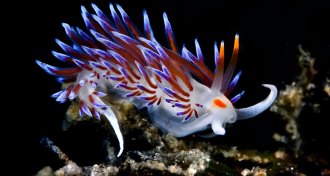 Animals
AnimalsThis sea slug makes its prey do half the food catching
Nudibranchs’ stolen meals blur classic predator-prey levels.
By Susan Milius -
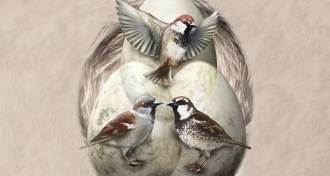 Life
LifeHybrids reveal the barriers to successful mating between species
Scientists don’t understand the process of speciation, but hybrids can reveal the genes that keep species apart.
-
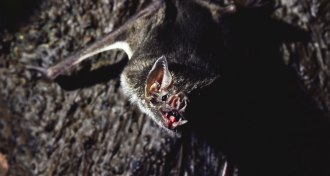 Animals
AnimalsScary as they are, few vampires have a backbone
Researchers speculate on why there are so few vampires among vertebrates.
By Susan Milius -
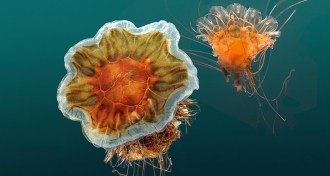 Animals
AnimalsHere’s the real story on jellyfish taking over the world
In 'Spineless,' a former marine scientist reconnects with the seas and science through her obsession with these enigmatic creatures.
-
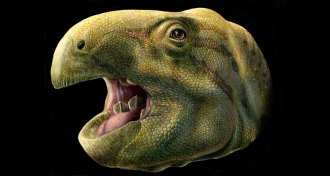 Paleontology
PaleontologyNew dinosaur sported a curious set of chompers
Matheronodon provincialis, a newly described dinosaur, munched on tough plants with big scissors for teeth.
-
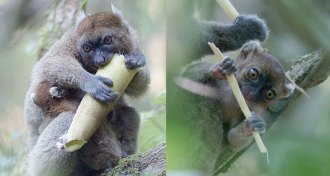 Animals
AnimalsClimate change may threaten these bamboo-eating lemurs
Longer dry spells and more nutrient-poor bamboo might eventually doom the greater bamboo lemur, a critically endangered species.
By Susan Milius -
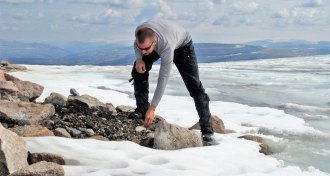 Climate
ClimateAs ice retreats, frozen mosses emerge to tell climate change tale
Plants long entombed beneath Canadian ice are now emerging, telling a story of warming unprecedented in the history of human civilization.
-
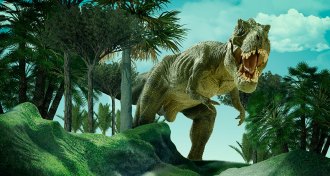 Paleontology
PaleontologyT. rex’s silly-looking arms were built for slashing
Tyrannosaurus rex may have used its small arms for slashing prey.
-
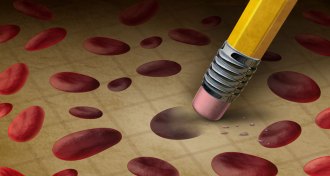 Genetics
GeneticsNew CRISPR gene editors can fix RNA and DNA one typo at a time
New gene editors can correct common typos that lead to disease.
-
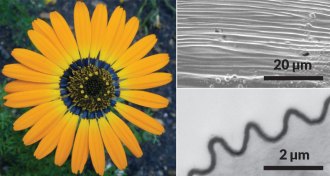 Life
LifeNanoscale glitches let flowers make a blue blur that bees can see
Bees learn about colorful floral rings faster when nanoscale arrays aren’t quite perfect.
By Susan Milius